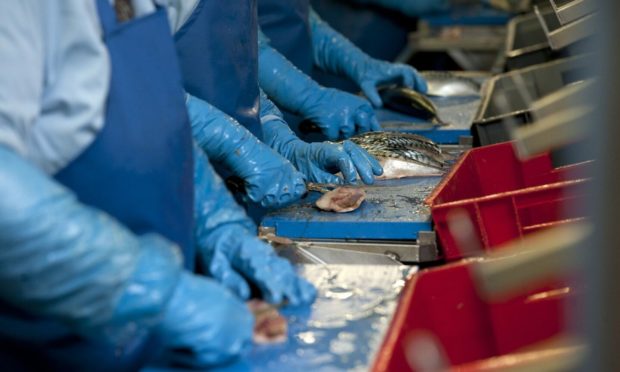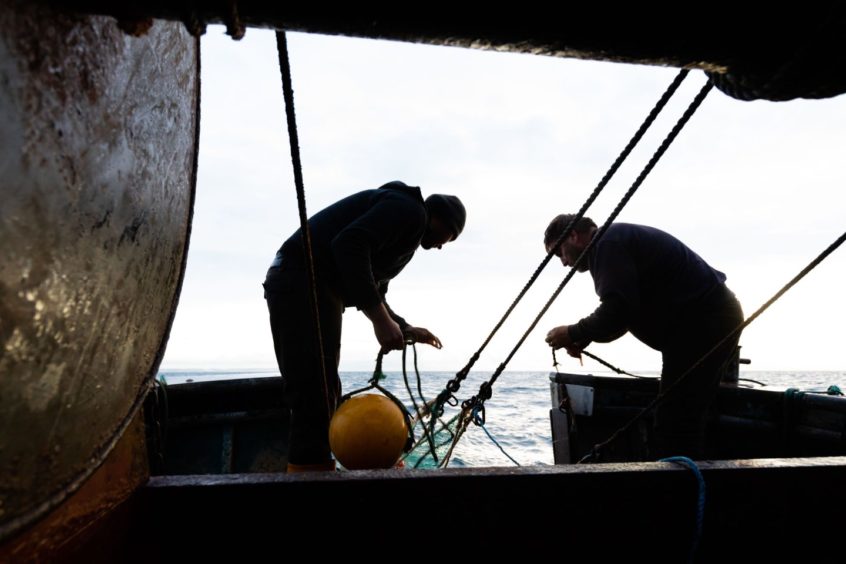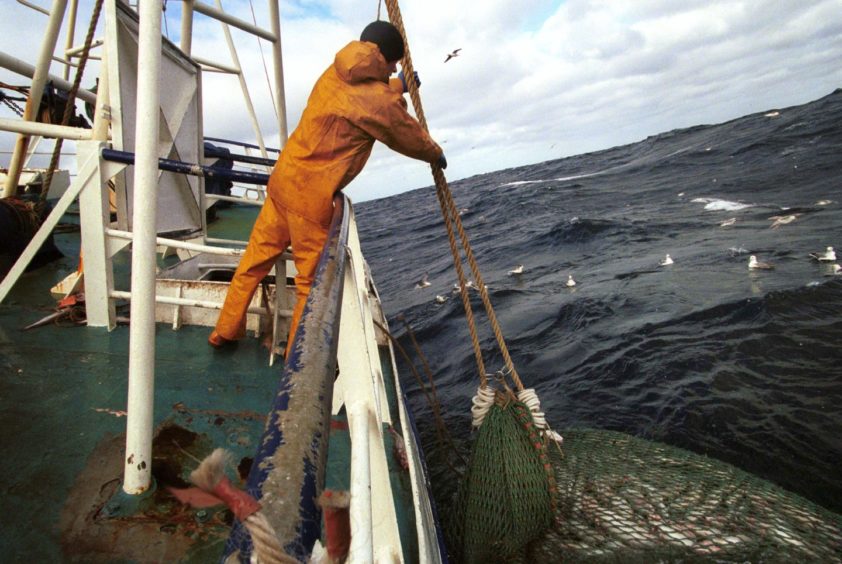Fisheries Secretary Mairi Gougeon highlighted challenging skills shortages in the Scottish seafood processing sector as she announced grants worth a total of nearly £800,000 to support the wider fishing industry today (September 1).
More than a quarter of the total has been awarded to Aberdeenshire-based Downies of Whitehills, which has secured around £206,000 towards building a new store and installing a freezer.
Downies, which can trace its roots back more than 120 years, will also use the cash to increase production efficiency, and reduce the amount of energy and packaging it uses.
Support for onboard observers
The largest payout, worth about £ 357,500 is to the Independent Fisheries Science Support Scheme, the latest phase of the independent onboard observers programme.
Data gathered by these onboard observers is used by Marine Scotland scientists and, ultimately, fed into the process of fish stock management.
Aberdeen-based economic development partnership Opportunity North East Trust has been awarded £52,000, which will support its work with the Scottish Seafood Association to develop seafood processing and deliver training.
A further £130,000 is going the way of young fishers, to help fund some of the equipment and vessels they require to start catching white-fish and shellfish.
And a project to clean up marine litter on the Solway Firth coast, in the south-west of Scotland, is getting around £38,300.
The cash – part of the £14 million Marine Fund Scotland pot launched by the Scottish Government earlier this year – is intended to help mitigate the impacts of Brexit and Covid-19 on the fishing industry.
Labour and skills shortages like these lay bare the extraordinary recklessness of this hard Brexit.”
Marie Gougeon, fisheries secretary
Announcing the payouts during a parliamentary debate on food and drink, Mrs Gougeon said: “Our producers, farmers and fishermen showed tremendous spirit as they navigated the pandemic and now face the stark realities of a new operating landscape brought about by a reckless Brexit deal.
“Daily, we hear of new and emerging challenges – shortages of HGV drivers, and workers in processing and manufacturing, as well as associated skills shortages across the industry.
“Labour and skills shortages like these lay bare the extraordinary recklessness of this hard Brexit.
“We certainly shouldn’t forget that as businesses faced Brexit border disruptions and barriers to trade – which cost UK food exporters £700m in January alone – the UK Government dismissed industry concerns as “teething troubles”.
Mrs Gougeon added the food and drink sector had been one of the industries most adversely affected by Brexit, undermining its ambition to double turnover to £30 billion by 2030.
‘Global leader’
Looking to the future of food and drink production, she said: “Scotland will be recognised as a global leader in sustainable agriculture.
“Whilst remaining aligned to the principles of the EU, we will also have a support framework that delivers climate mitigation and adaptation, nature restoration and high-quality food production.
“This includes our commitment to seek to double the amount of land used for organic farming by 2026.”
And speaking after the debate, she said: “Every day people do extraordinary things to keep Scotland fed – particularly our fishers, who put their lives at risk to ensure we all get to enjoy fresh seafood and fish.
“We are determined to support them to do so safely and sustainably.”
Meanwhile, Scotland Office Minister David Duguid has inaugurated the Scottish Seafood Industry Action Group – the long-planned successor to the Scottish Seafood Exports Task Force.
Issues discussed at the first, virtual, meeting included the EU’s decision to delay implementing new regulations around export certification until next year and the industry’s concerns about a shortage of labour in the processing sector.
Mr Duguid, Conservative MP for Banff and Buchan, said: “The Scottish Seafood Exports Task Force wound up earlier this year after six months of hard work between government and industry.
“It delivered a range of successes on issues including the digitisation of paperwork and delays at export hubs.
“I believe the new action group can use a similar structure to help maximise the opportunities for Scottish seafood.”
Labour woes ‘a priority’
He added: “A priority for the industry is the issue of labour shortages and this is something we are in the process of considering.”
The action group brings key figures from the seafood industry together with ministers and officials from the UK and Scottish governments.




